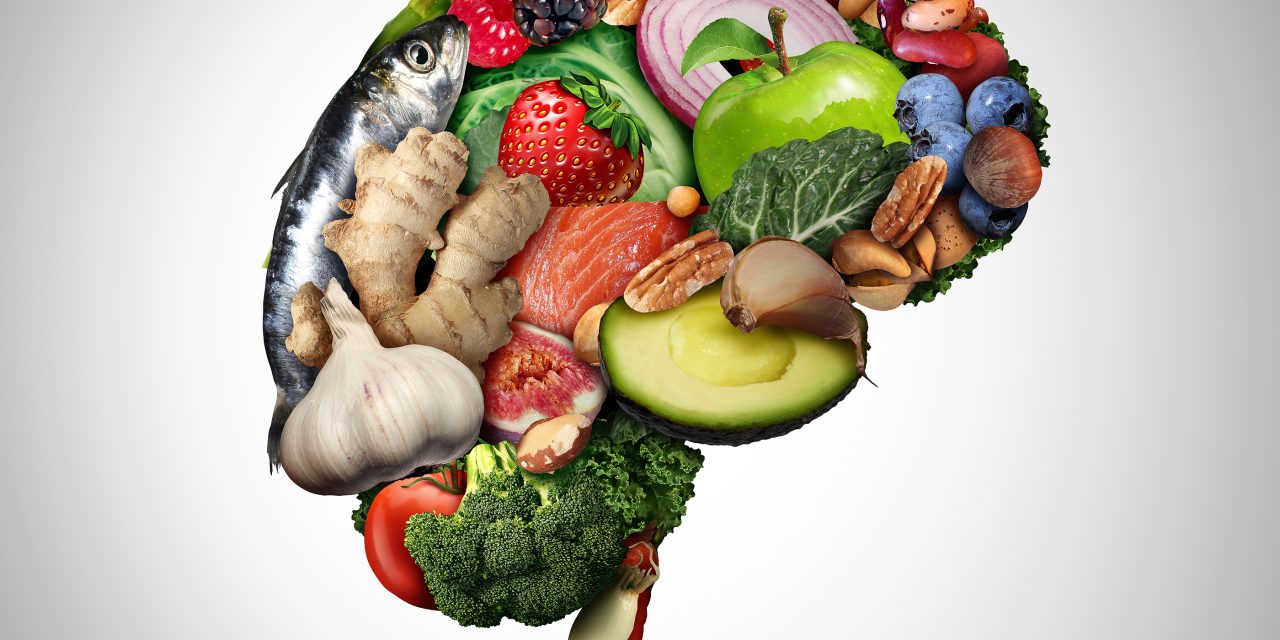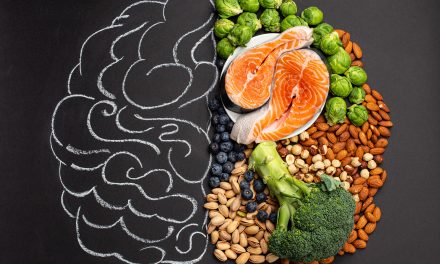Improving memory is a goal for many, and one important aspect of achieving this is through a healthy diet. Research has shown that certain foods can help to enhance cognitive function, while others can potentially hinder it. By incorporating specific food groups, nutrients, and superfoods into our daily meals, we can foster an environment in which our brain’s memory capabilities can thrive.
It is essential to consider the impact of carbohydrates, proteins, and amino acids on cognitive function, as these macronutrients play a critical role in brain health. Additionally, hydration plays a significant role in memory performance, and some herbs and spices can support brain function as well. Furthermore, it is crucial to recognize which foods to limit or avoid for better memory and identify dietary patterns that may aid or impair cognitive health.
Key Takeaways
- A balanced diet rich in brain-boosting foods can improve memory and cognitive function.
- Hydration and selecting the appropriate macronutrients are essential aspects of a memory-enhancing diet.
- Limiting certain foods and implementing practical tips can maximize the brain-boosting benefits of your daily meals.
Importance of Diet on Memory Function
A well-balanced diet plays a significant role in promoting optimal brain function and enhancing memory. Consuming the right nutrients helps in protecting the brain from oxidative stress, which can lead to cognitive decline. There are several key components to consider when planning a diet for memory improvement.
Firstly, it is crucial to include foods rich in antioxidants. Antioxidants help neutralize the harmful effects of free radicals, which can damage brain cells. Some of the best sources of antioxidants are:
- Berries (e.g., blueberries, strawberries, raspberries)
- Leafy greens (e.g., spinach, kale, collard greens)
- Nuts and seeds (e.g., walnuts, almonds, sunflower seeds)
- Dark chocolate
Secondly, incorporating omega-3 fatty acids in your diet can enhance memory performance. These essential nutrients support brain health by maintaining the integrity of brain cell membranes and promoting neuronal communication. Excellent sources of omega-3 fatty acids include:
| Food Source | Type of Omega-3 |
|---|---|
| Fatty fish | EPA and DHA |
| Chia seeds | ALA |
| Walnuts | ALA |
| Flaxseeds | ALA |
Moreover, consider consuming foods high in B vitamins, especially vitamin B6, B9 (folic acid), and B12. These vitamins assist in reducing homocysteine levels in the blood; elevated homocysteine levels have been linked to poor memory function. Foods rich in B vitamins are:
- Whole grains (e.g., brown rice, quinoa, whole wheat bread)
- Legumes (e.g., beans, lentils, chickpeas)
- Poultry and lean meats (e.g., chicken, turkey, lean beef)
- Dairy products (e.g., milk, yogurt, cheese)
Lastly, maintaining proper hydration is essential for overall brain health. Dehydration can impair cognitive abilities, including memory and attention. Aim for at least 8 cups of water per day, or more if engaging in strenuous activities or spending time in hot environments.
In summary, a nutritious diet emphasizing antioxidants, omega-3 fatty acids, B vitamins, and proper hydration can significantly contribute to improved memory function. Incorporate these essential components in your daily meals to support optimal brain health and cognitive performance.
Brain-Boosting Food Groups
Fatty Fish: Incorporating fatty fish, such as salmon, trout, mackerel, and sardines, into your diet can benefit cognitive function. They are rich in omega-3 fatty acids, which are essential for maintaining healthy brain cells. Studies suggest that regular consumption of fatty fish may reduce the risk of age-related cognitive decline and improve memory.
Berries: Berries, particularly blueberries, strawberries, and blackberries, are rich in flavonoids – a group of antioxidants known to have cognitive benefits. These powerful antioxidants may help protect brain cells from oxidative stress and inflammation, thus potentially improving memory and cognitive function.
- Fatty Fish
- Salmon
- Trout
- Mackerel
- Sardines
- Berries
- Blueberries
- Strawberries
- Blackberries
Nuts and Seeds: Consuming a variety of nuts and seeds, such as almonds, walnuts, and pumpkin seeds can support brain health. These nutrient-dense foods contain healthy fats, vitamin E, and antioxidants, which can protect the brain from oxidative stress. Additionally, they provide essential minerals, such as magnesium and zinc, which play a role in nerve signaling and overall brain function.
Leafy Greens: A diet rich in leafy green vegetables, like spinach, kale, and collard greens, can contribute to cognitive health. These greens are packed with antioxidants, including vitamin C and beta-carotene, and are also a great source of vitamin K. Research has found that higher consumption of leafy greens may be linked to a slower rate of cognitive decline.
Incorporate these brain-boosting food groups into your daily diet to support cognitive function and overall brain health. A well-balanced diet, combined with regular exercise and mental stimulation, will contribute to a healthier brain and improved memory.
Key Nutrients for Memory Enhancement
Omega-3 Fatty Acids
Omega-3 fatty acids are essential nutrients that play a crucial role in cognitive function. These fats are found in high concentrations in the brain, where they help maintain the integrity of cell membranes, ensuring optimal function of brain cells. Foods rich in omega-3 fatty acids include:
- Fatty fish: such as salmon, mackerel, and sardines
- Nuts and seeds: like walnuts, flaxseeds, and chia seeds
- Plant oils: for example, flaxseed oil, canola oil, and soybean oil
Regular consumption of these sources can enhance memory retention and may potentially prevent age-related cognitive decline.
Antioxidants
Antioxidants are compounds that help maintain cognitive function by neutralizing harmful free radicals, protecting brain cells from oxidative stress, and reducing inflammation. Some prominent antioxidant-rich foods include:
- Berries: blueberries, raspberries, and strawberries
- Leafy greens: spinach, kale, and collard greens
- Dark chocolate: 70% cocoa or higher content
- Tea: green and black tea varieties
Incorporating these foods into a daily diet can help to boost memory and preserve cognitive health.
B Vitamins
B vitamins, particularly vitamins B6, B9, and B12, are crucial for maintaining healthy cognitive function. They serve various roles in the body, ranging from synthesizing neurotransmitters to regulating homocysteine levels – factors that directly affect brain health. Foods high in B vitamins include:
| Vitamin | Rich Food Sources |
|---|---|
| B6 | Chickpeas, bananas, chicken, tuna, salmon |
| B9 (Folate) | Lentils, spinach, asparagus, avocado, beets |
| B12 | Shellfish, liver, beef, yogurt, milk, fortified cereals |
Ensuring adequate intake of these vitamins through diet or supplementation is essential to support memory and overall cognitive function.
Superfoods for Cognitive Health
Berries
Berries are an excellent source of antioxidants and flavonoids, which are known to boost brain function. Specifically, the antioxidants in berries, such as blueberries, strawberries, and blackberries, help to protect the brain from free radical damage and oxidative stress. Consuming a variety of these berries regularly may lead to enhanced memory and cognitive function.
Leafy Greens
Incorporating leafy greens into your diet can work wonders for your mental clarity and memory. Greens, such as spinach, kale, and collard greens, are packed with essential nutrients, including vitamin K, folate, and lutein. These nutrients have been shown to reduce inflammation, improve brain health, and support memory function.
A simple way to include leafy greens in your diet is by adding them to salads, smoothies, or even as a side dish.
Nuts and Seeds
Nuts and seeds are nutrient-dense sources of healthy fats, essential for overall brain health. The omega-3 and omega-6 fatty acids in these foods provide numerous cognitive benefits, including improved memory and concentration.
Some common nuts and seeds for brain health include:
- Walnuts
- Almonds
- Flaxseeds
- Chia seeds
- Pumpkin seeds
Adding a mixed handful of these nuts and seeds to your daily meals or even as a snack can be an easy and effective way to enhance your mental performance.
Hydration and Memory Performance
Proper hydration plays a crucial role in maintaining optimal brain function and memory performance. Dehydration can lead to cognitive decline and impaired memory. To ensure optimal hydration, one should consume an adequate amount of water and include water-rich foods in their daily diet.
It is suggested to follow the 8×8 rule which refers to consuming eight 8-ounce glasses of water per day. This is approximately 2 liters or a half a gallon. However, specific water intake requirements depend on factors such as age, sex, body weight, and activity level.
Incorporating water-rich foods in your diet also contributes to hydration and memory function. Here are some examples of hydrating foods:
- Watermelon: 92% water content
- Cucumber: 95% water content
- Strawberries: 91% water content
- Celery: 95% water content
| Food | Water Content (%) |
|---|---|
| Watermelon | 92 |
| Cucumber | 95 |
| Strawberries | 91 |
| Celery | 95 |
Including these hydrating foods in your diet not only provides water but also offers essential vitamins, minerals, and antioxidants that further promote brain health and memory function.
In addition to water intake and hydration through food sources, it is important to monitor caffeine and alcohol consumption. Both of these substances may lead to dehydration when consumed in excess. Limiting their intake and balancing them with water consumption can help maintain hydration levels.
Remember that staying hydrated is crucial for optimal memory performance and overall brain function. Proper water intake and incorporating hydrating foods in the daily diet will support cognitive processes and memory proficiency.
Herbs and Spices That Support Brain Health
In this section, we will discuss the benefits of two herbs and spices that are known to support brain health: Turmeric and Rosemary. These natural ingredients not only add flavor to your meals but also positively impact your memory and cognitive functions.
Turmeric
Turmeric, an essential ingredient in Indian cuisine, contains a powerful compound called curcumin. This substance has been widely studied for its anti-inflammatory and antioxidant properties. Various researches have shown considerable evidence supporting the potential of curcumin in promoting cognitive health.
- Reducing inflammation: Chronic inflammation is known to contribute to brain-related disorders, such as Alzheimer’s disease. Curcumin found in turmeric can help reduce inflammation (Jiang et al., 2013).
- Antioxidant effects: Curcumin has potent antioxidant effects that can protect against oxidative damage, which is known to negatively affect brain function (Mishra & Palanivelu, 2008).
- Neurogenesis: Studies have shown that curcumin can increase the levels of Brain-Derived Neurotrophic Factor (BDNF), a protein that stimulates the growth of new neurons and strengthens existing ones (Xu, Ku, & Yao, 2005).
To incorporate turmeric in your diet, you can:
- Use it as a spice in your cooking.
- Add a pinch to your smoothies.
- Make turmeric tea.
Rosemary
Rosemary is an aromatic herb commonly found in Mediterranean cuisine. Beyond its culinary use, rosemary has been linked to improved memory and cognitive function thanks to its active compounds such as carnosic acid and rosmarinic acid.
- Antioxidant effects: Rosemary’s antioxidant properties protect brain cells from oxidative stress, potentially reducing the risk of memory-related disorders (Al-Attar & Zari, 2010).
- Cognitive enhancement: Studies have shown that inhaling the aroma of rosemary essential oil can boost cognitive performance in tasks that require focused concentration (Moss et al., 2003).
- Neuroprotection: The carnosic acid in rosemary has been shown to protect neurons from damage and promote their survival (Satoh et al., 2008).
To enjoy the benefits of rosemary, you can:
- Use it as a seasoning for your meals.
- Brew rosemary tea.
- Diffuse rosemary essential oil in your living spaces.
By including turmeric and rosemary in your diet, you are making a positive step towards improving your brain health and memory functions.
Impact of Carbohydrates on Cognitive Function
Carbohydrates are an essential part of a healthy diet, providing the body with necessary energy to function optimally. The brain, in particular, relies heavily on glucose – a simple sugar derived from carbohydrates – as its primary source of energy. Consuming carbohydrates in moderation can help maintain stable blood sugar levels and support cognitive function. However, excessive consumption of refined carbs can have adverse effects on brain health.
Complex Carbohydrates vs. Refined Carbohydrates
Carbohydrates can be broadly classified into two categories: complex carbohydrates and refined carbohydrates. Complex carbohydrates, found in foods like whole grains, fruits, and vegetables, are considered healthier options as they are rich in fiber, vitamins, and minerals. On the other hand, refined carbohydrates, such as white bread, pastries, and sugary drinks, are stripped of their nutrients and fiber during processing.
- Complex Carbohydrates: Helps maintain stable blood sugar levels, leading to sustained mental energy and improved cognitive function.
- Examples: Whole grains, fruits, vegetables, legumes.
- Refined Carbohydrates: Rapidly increase blood sugar levels, causing spikes and crashes that can affect cognitive function and mood.
- Examples: White bread, pastries, sugary drinks, processed snacks.
The Role of Fiber in Cognitive Health
Fiber, an indigestible part of plant-based carbohydrates, plays a crucial role in maintaining gut health and blood sugar stability. A fiber-rich diet can help to improve brain health by:
- Slowing down the absorption of sugar, contributing to more stable blood sugar levels.
- Supporting the growth of beneficial gut bacteria, which can impact cognitive function and overall brain health.
Incorporating complex carbohydrates and fiber-rich foods into the diet can help support optimal cognitive function. Some healthy options include:
- Whole grains: Oats, quinoa, brown rice, whole wheat products.
- Fruits: Berries, apples, oranges, pears.
- Vegetables: Leafy greens, carrots, bell peppers, tomatoes.
- Legumes: Lentils, chickpeas, beans.
In conclusion, consuming the right type of carbohydrates is necessary for achieving optimal brain health. Emphasizing complex carbohydrates and fiber-rich foods in the diet can support cognitive function, while limiting refined carbohydrate intake can help minimize adverse effects on brain health.
Proteins and Amino Acids for Brain Power
Protein-rich foods, packed with essential amino acids, can support memory consolidation, learning, and overall brain function. Consuming a healthy balance of these essential amino acids can improve cognitive performance. Here are some top sources of proteins and amino acids for brain power:
Fish
Fatty fish like salmon, mackerel, and sardines are rich in omega-3 fatty acids, including eicosapentaenoic acid (EPA) and docosahexaenoic acid (DHA). These fatty acids are known for their role in brain health, reducing inflammation and promoting brain cell growth.
Salmon: 20g/100g
Mackerel: 19g/100g
Sardines: 25g/100g
Nuts and Seeds
Nuts and seeds contain healthy fats, antioxidants and proteins that can aid brain function. Walnuts, for example, are packed with omega-3 fatty acids, while sunflower seeds boast vitamin E, which has been shown to slow cognitive decline.
- Walnuts: 15g/100g
- Sunflower seeds: 21g/100g
Eggs
Eggs are an excellent source of protein, with two key nutrients for brain health: choline and lutein. Choline supports neurotransmitter synthesis, while lutein protects the brain against oxidative stress.
Eggs: 13g/100g
Lean Poultry
Lean poultry, such as chicken and turkey, provides high-quality protein that stimulates the release of norepinephrine and dopamine. These neurotransmitters can help regulate mood, alertness, and memory.
Chicken: 26g/100g
Turkey: 29g/100g
Besides these protein-rich foods, it’s important to include a variety of fruits, vegetables, whole grains, and healthy fats in a well-rounded diet. A balanced approach to nutrition is fundamental for optimal brain function and overall wellbeing.
Foods to Limit or Avoid for Better Memory
When it comes to memory improvement, it’s not just about adding brain-friendly foods to your diet, but also considering which foods to limit or avoid. Consuming excessive amounts of certain foods can lead to memory issues and cognitive decline. This section highlights some foods that should be limited or avoided for better memory.
Foods high in saturated fats like fatty meats, butter, and cheese can have a negative impact on your brain health. Consuming a diet high in saturated fat has been linked to poor memory and concentration, as well as an increased risk for Alzheimer’s disease. Instead, focus on consuming healthy fats from sources like nuts, seeds, and fish for better memory.
Another group of foods to avoid are those with a high glycemic index (GI). These foods can cause an unhealthy spike in blood sugar levels, which can lead to both short-term and long-term memory problems. High GI foods include sugary treats, refined carbohydrates, and white bread. Opt for low GI foods such as whole grains, legumes, and non-starchy vegetables to support brain function.
It’s essential to limit processed foods in your diet for better memory. These foods often contain high amounts of salt, sugar, preservatives, and unhealthy fats – all of which can negatively affect brain function. Some examples of processed foods to avoid include snack foods, processed meats, ready-made meals, and sugary drinks. Choose whole foods and cook your meals from scratch whenever possible to improve your brain health.
Lastly, be mindful of alcohol consumption. Heavy or binge drinking can lead to memory problems and long-term cognitive decline. Limit your alcohol intake to moderate levels, which is generally considered to be one to two standard drinks per day.
By avoiding or limiting these foods and consuming a well-balanced, nutrient-dense diet, you can support better memory and brain health.
Dietary Patterns and Cognitive Health
Mediterranean Diet
The Mediterranean Diet is a dietary pattern known for its potential benefits to cognitive health. This diet focuses on fruits, vegetables, whole grains, legumes, fish, and healthy fats such as olive oil. Some key components of the Mediterranean diet include:
- High intake of fruits and vegetables
- Moderate consumption of fish
- Limited red meat consumption
- Use of olive oil as the primary fat source
These components have been associated with reduced oxidative stress and inflammation, which may help to protect and improve memory function.
DASH Diet
Another dietary pattern linked to cognitive health is the DASH (Dietary Approaches to Stop Hypertension) Diet. The DASH diet focuses on reducing sodium intake and emphasizes the consumption of whole grains, fruits, and vegetables. Some key elements of the DASH diet include:
- High intake of fruits and vegetables
- Incorporation of low-fat dairy products
- Limited consumption of red meat
- Inclusion of nuts and seeds in moderation
By following these guidelines, the DASH diet has been shown to help lower blood pressure, which can positively impact cognitive health and memory function.
MIND Diet
The MIND (Mediterranean-DASH Intervention for Neurodegenerative Delay) Diet combines elements from both the Mediterranean and DASH diets, with additional focus on specific brain-healthy food groups. These key components of the MIND diet include:
- Green leafy vegetables (e.g., kale, spinach)
- Berries, particularly blueberries
- Nuts, particularly almonds and walnuts
- Fish, especially fatty fish rich in omega-3 fatty acids
- Whole grains
- Olive oil
These food groups have been found to support brain health by reducing inflammation, oxidative stress, and the risk of developing neurodegenerative diseases.
Practical Tips for Incorporating Memory Foods into Diet
Eating a balanced diet that includes brain-boosting foods can contribute to better memory and cognitive function. Here are some practical tips to seamlessly integrate these memory foods into your everyday diet.
Start the day with a nutrient-rich breakfast: Incorporating memory-boosting ingredients into breakfast can set a positive tone for the day. Opt for:
- Fresh fruits such as blueberries and strawberries.
- Whole grains like oats and quinoa.
- Protein-rich eggs.
Incorporate healthy fats into meals: Including healthy fats, like omega-3s, can promote brain health. Include these in your diet:
- Fatty fish such as salmon, mackerel, or sardines.
- Plant-based sources like flaxseeds, chia seeds, and walnuts.
Snack on nuts and seeds: Nuts and seeds make for excellent memory-boosting snacks. Keep these on hand:
- Almonds
- Walnuts
- Sunflower seeds
Season meals with brain-friendly herbs and spices: Enhance the flavor and nutritional value of your dishes using the following herbs and spices:
- Turmeric
- Cinnamon
- Rosemary
Stay hydrated: Consuming adequate water is essential for optimal brain function. Aim to drink at least eight glasses of water per day. Herbal teas, coconut water, and infused water can also contribute to proper hydration.
By following these simple tips, incorporating memory-enhancing foods into a daily diet can be effortless and enjoyable. The consistent consumption of these beneficial foods can contribute significantly to improved cognitive function and overall brain health.
Frequently Asked Questions
What fruits enhance cognitive functions and memory?
Blueberries, strawberries, and blackberries are rich in antioxidants and have been shown to improve memory and cognitive functions. Citrus fruits like oranges, grapefruits, and lemons are also beneficial due to their high vitamin C content which supports brain health.
Which foods are known to increase mental sharpness and focus?
Foods rich in omega-3 fatty acids, such as fatty fish (salmon, mackerel, and sardines) and nuts (walnuts, almonds, and hazelnuts), can enhance mental sharpness and focus. Additionally, leafy green vegetables (spinach, kale, and collard greens) and whole grains (oats, quinoa, and brown rice) contribute to better cognitive function.
What dietary choices can aid in the recovery and rejuvenation of brain health?
A diet rich in antioxidants, vitamins, and minerals is essential for brain health recovery. This includes foods such as dark chocolate, green tea, and avocados. Limiting saturated fats and refined sugars can also help in the rejuvenation of brain health.
Can you name some foods that are particularly beneficial for students’ cognitive performance?
Eggs, which are rich in choline, can improve memory and cognitive performance. Oats and whole grains provide sustained energy and promote brain function. Additionally, yogurt and other probiotic-rich foods may have a positive impact on mental health and cognitive performance.
Are there drinks that contribute to better memory retention?
Green tea, rich in antioxidants and L-theanine, has been shown to improve memory function and reduce cognitive decline. Drinking water can also help maintain optimal brain function, as dehydration can negatively affect memory and cognitive abilities.
What are some eating habits to avoid for maintaining optimal memory function?
To maintain optimal memory function, it is essential to avoid excessive intake of processed foods, sugar, and alcohol. Skipping meals can also negatively impact memory, so it is crucial to maintain a regular eating schedule with balanced, nutritious meals.
Conclusion
In conclusion, incorporating memory-boosting foods into your diet can have a significant impact on cognitive function and overall brain health. By prioritizing nutrient-dense foods such as berries, fatty fish, leafy greens, and nuts, individuals can support their memory and cognitive abilities. However, it’s important to remember that overall dietary patterns and lifestyle factors also play a crucial role in maintaining brain health. Therefore, a holistic approach to nutrition, combined with regular exercise and mental stimulation, can contribute to long-term memory improvement and overall well-being.




















